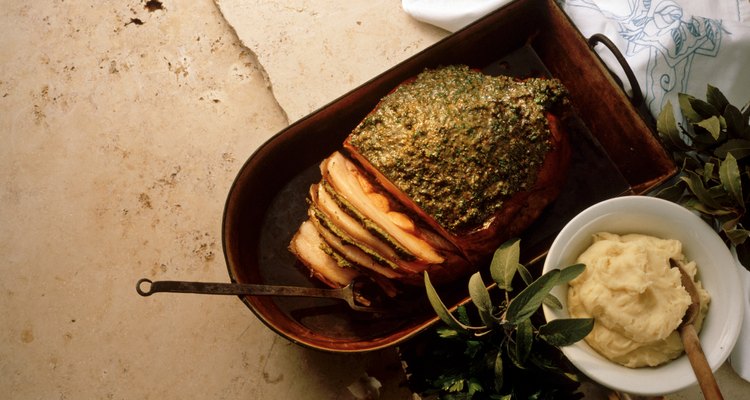
Dry rub should impart a bold spectrum of flavors to meat or a vegetable, bringing out the main ingredient’s best qualities. Without a balanced blend of seasonings, a dry rub may overwhelm a food -- and subsequently your mouth -- with heat. Regardless of where you are in the cooking process when you realize the dry rub is too spicy, you have some options for fixing it.
Step 1
Mix another batch of dry rub without the spicy ingredients if you have not applied the rub to any meats or vegetables yet. Combine the new, unspiced rub with the original batch of dry rub that is too spicy. Alternatively, add brown sugar to the over-spiced rub to take away some of the heat. Sugar neutralizes spiciness. Incorporate 1/2 teaspoon of brown sugar for every 1/4 cup of dry rub, then taste the new blend. Add more brown sugar in 1/2 teaspoon increments until the dry rub is palatable.
Step 2
Run a butter knife or spoon across the surface of raw food to scrape off dry rub that you have already applied but not yet cooked. Brush the surface of the meat or vegetable with an acid, such as citrus juice or vinegar, which can help neutralize heat. Choose an acidic ingredient that will complement the flavor of the dish so it does not change the overall flavor drastically. For example, apple cider vinegar would affect the overall flavor of seasoned pork spareribs less than lemon juice, which might leave a tangy aftertaste on the meat’s surface.
Step 3
Baste the meat frequently during cooking. The liquid will wash away some of the dry rub while simultaneously keeping the food moist. Use beef, chicken or vegetable stock if you do not already have a sauce prepared for basting the dish.
Step 4
Serve a mild condiment or sauce with the cooked food that is over-spiced. Cream-based sauces and condiments, such as ranch dressing, cheese sauce or sour cream, are effective at neutralizing heat, though they do not suit all dry-rubbed foods. If all else fails, serves a creamy or starchy side dish. A creamy food, such as potato salad or mashed potatoes, will give your taste buds a break, helping to diminish the overall heat of the meal.
Related Articles
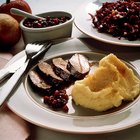
How to Make a Venison Rub

Do You Put Dry Rubs on Before You Cook ...

How to Make Teriyaki Sauce
Can I Cook Dry Rub Pork in a Slow ...

How to Cook a Beef Roast in a Roaster ...

How to Smoke Buffalo Meat
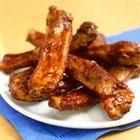
How to Bake Spare Ribs Before BBQing

How to Use Kelp on Your Face to Tighten ...

How to Use an Indoor Electric Grill

Grilling Instructions for Rib-Eye Steak
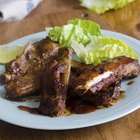
How to Marinate & Dry Rub Beef Ribs

How to Cook Pork Hamonado

How to Treat Timberland Boots
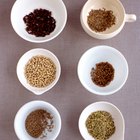
How to Smoke a Brisket & Finish it in ...
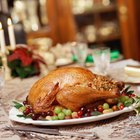
Seasonings for a Turkey Breast

How to Repair Heat Damaged Leather

How to Make Sweet Soy Sauce

Can You Cook Something Frozen in the ...

How to Make Lamb Stew

The Difference Between Grilled and ...
References
Warnings
- Adding brown sugar to an over-spiced rub will help neutralize the heat, but it will also make the rub sweeter. Taste the mixture as you increase the sugar content to avoid making it too sweet.
- The additional sugar will also cause the food to cook more quickly, so monitor the dish vigilantly so you can adjust the cooking time or temperature as needed.
Writer Bio
Grace Riley has been a writer and photographer since 2005, with work appearing in magazines and newspapers such as the "Arkansas Democrat-Gazette." She has also worked as a school teacher and in public relations and polling analysis for political campaigns. Riley holds Bachelor of Arts degrees in American studies, political science and history, all from the University of Arkansas.
Photo Credits
Eising/Photodisc/Getty Images